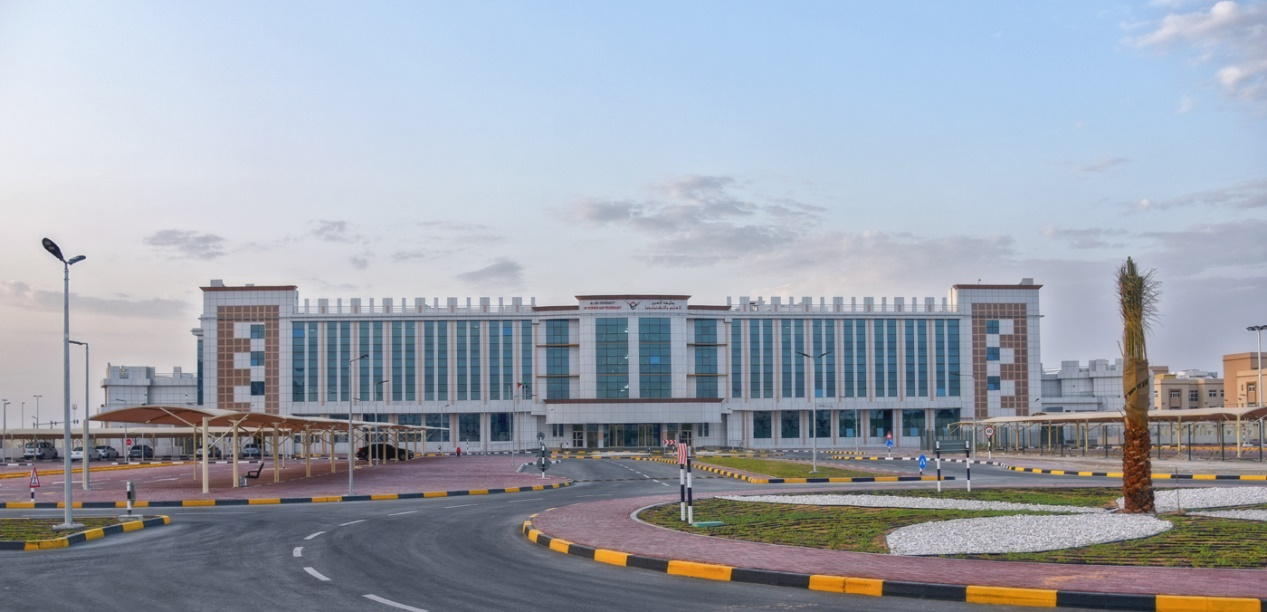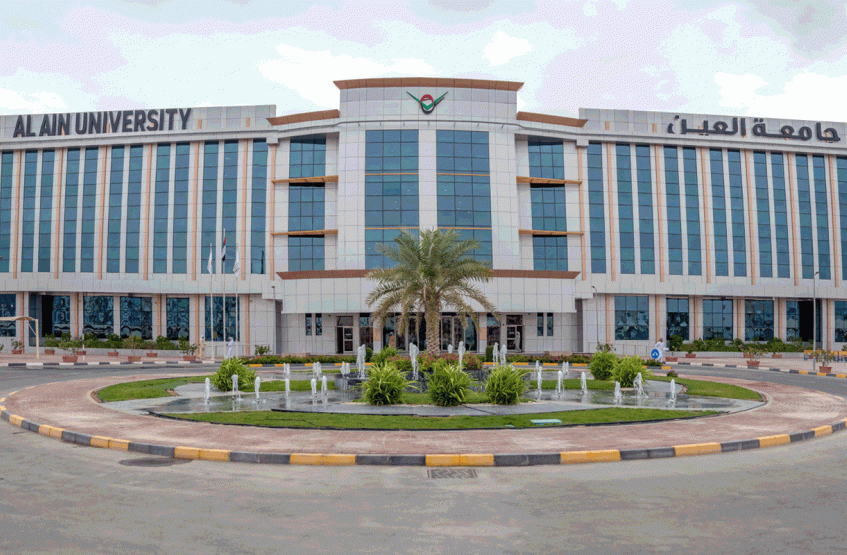Workshop Title:
Exploring the Internet of Things
Date:
January 27th, 2024 (GMT+4)
Organizer:
Al Ain University
Keywords:
- Internet of Things (IoT)
- Connected devices
- Sensors
- Connectivity protocols
- Cloud computing
- Data analytics
- Smart cities
- Healthcare
- Transportation
- Agriculture
- Security
- Privacy
- Interoperability
- Scalability
Workshop Chair:
Personal Bio:
Dr. Yazeed Ghadi, Senior Member, IEEE, is a distinguished researcher and academic in the field of computer engineering and computer science. He earned his Ph.D. degree from Queensland University, where his groundbreaking research on developing hybrid plasmonic-photonic on-chip biochemical sensors earned him the prestigious Sigma Xi Best Ph.D. Thesis Award.
Currently serving as an Associate Professor of Computer Science at Al Ain University, Dr. Yazeed brings a wealth of expertise and experience to his role. Prior to joining Al Ain University, he worked as a Postdoctoral Researcher at The University of Queensland, further expanding his knowledge and contributing to cutting-edge research in his field.
Dr. Yazedd has an impressive publication record, with over 100+ peer-reviewed journals and conference papers to his credit. His research contributions extend beyond publications, as he holds three pending patents, showcasing his innovative thinking and commitment to advancing technology.
With a focus on developing novel electro-acoustic-optic neural interfaces for large-scale high-resolution electrophysiology and distributed optogenetic stimulation, Dr. Yazeed's current research interests align with the forefront of scientific exploration. His groundbreaking work has earned him recognition through various awards, underscoring his exceptional contributions to the field of electrical and computer engineering. In summary, Dr. Yazeed is an esteemed professional who has made significant contributions to academia and research. His dedication, expertise, and commitment to advancing knowledge make him a valuable asset in the field of electrical and computer engineering.
Workshop Description:
Background:
The Internet of Things (IoT) refers to the network of interconnected physical devices, vehicles, appliances, and other objects embedded with sensors, software, and connectivity capabilities. These devices collect and exchange data, allowing them to interact and communicate with each other without human intervention. The IoT has emerged as a transformative technology with the potential to revolutionize various industries and aspects of daily life.
The proliferation of IoT devices has been driven by advancements in technology, including the miniaturization of sensors, the availability of low-cost connectivity options, and the rise of cloud computing and data analytics. These advancements have enabled the seamless integration of physical and digital systems, creating opportunities for improved efficiency, automation, and data-driven decision-making.
The applications of IoT span across industries, impacting sectors such as healthcare, transportation, agriculture, manufacturing, energy, smart cities, and more. In healthcare, IoT devices can monitor patient health remotely, facilitate telemedicine services, and enable real-time data analysis for personalized treatments. In transportation, IoT enables smart traffic management, predictive maintenance for vehicles, and connected infrastructure for safer and more efficient mobility. Agriculture can benefit from IoT by utilizing sensors for precise irrigation and monitoring crop health. These examples demonstrate the vast potential of IoT in optimizing processes, enhancing productivity, and delivering new services.
However, along with its immense potential, the IoT landscape presents challenges and considerations. Security and privacy are critical concerns due to the large-scale deployment of connected devices and the potential vulnerabilities they may introduce. Ensuring the protection of sensitive data, securing networks and devices, and establishing robust authentication mechanisms are essential aspects of IoT implementation.
Moreover, interoperability and scalability are crucial for the success of IoT ecosystems. With numerous devices and platforms, ensuring seamless communication and integration between different components is vital. Additionally, the ability to scale IoT deployments to accommodate growing networks and data volumes is a significant consideration. Understanding the IoT landscape, its technologies, applications, and implementation considerations is essential for organizations seeking to leverage its potential. Workshops on the Internet of Things provide a structured learning experience that equips participants with the knowledge and skills necessary to navigate the complex world of IoT and harness its benefits for innovation, growth, and digital transformation.
Goal/Rationale:
The goal of a workshop on the Internet of Things (IoT) is to provide participants with a deep understanding of the concept, technologies, applications, and implementation considerations of IoT. The workshop aims to achieve the following objectives:
1-Knowledge Acquisition: Educate participants about the fundamental principles, components, and architecture of IoT. Participants will gain a comprehensive understanding of how IoT works and its potential impact on industries and society.
2-Application Exploration: Explore real-world examples and use cases of IoT in various sectors, such as healthcare, transportation, agriculture, manufacturing, and smart cities. Participants will discover the diverse applications of IoT and understand how it can drive innovation and improve operational efficiency.
3-Technology Familiarization: Introduce participants to the core technologies that enable IoT ecosystems, including sensors, connectivity protocols, cloud computing, and data analytics. Participants will become familiar with the building blocks of IoT and their role in creating connected and intelligent systems.
4-Implementation Considerations: Discuss the challenges, considerations, and best practices associated with implementing IoT solutions. Participants will learn about scalability, interoperability, security, privacy, and other critical factors that need to be addressed when deploying IoT projects.
5- Hands-on Experience: Engage participants in practical activities and exercises that allow them to apply their knowledge and skills in developing IoT concepts and solutions. This hands-on experience will enhance their understanding and provide valuable insights into the practical aspects of IoT implementation.
Scope and Information for Participants:
The scope of the workshop on the Internet of Things (IoT) encompasses various key areas related to IoT concepts, technologies, applications, and implementation considerations. Participants can expect to gain the following information and insights:
1- Understanding IoT:
- Definition and scope of IoT in the context of the digital landscape.
- Importance and potential impact of IoT on industries and society.
- Benefits and challenges associated with adopting IoT solutions.
2- IoT Technologies:
- Overview of the core technologies driving IoT, including sensors, actuators, connectivity protocols, and IoT platforms.
- Introduction to cloud computing, edge computing, and data analytics in IoT systems.
- Familiarity with emerging technologies and trends shaping the IoT landscape.
3- IoT Applications:
- Real-world examples and case studies showcasing IoT implementations in different industries, such as healthcare, transportation, agriculture, manufacturing, energy, and smart cities.
- Insight into the transformative potential of IoT in improving processes, enhancing efficiency, and delivering innovative services.
4- Implementation Considerations:
- Factors to consider when planning and implementing IoT projects, including scalability, interoperability, security, and privacy.
- Best practices for selecting and integrating IoT devices, platforms, and solutions.
- Compliance with regulations and standards related to data privacy and security in IoT deployments.
5- Security and Privacy in IoT:
- Understanding the unique security challenges and risks associated with IoT ecosystems.
- Strategies for securing IoT devices, networks, and data.
- Privacy considerations and methods for protecting personal and sensitive information in IoT deployments.
6- Practical Exercises and Case Studies:
- Engaging hands-on activities and simulations that allow participants to apply their knowledge and develop IoT concepts or prototypes.
- Analysis of real-world case studies to showcase successful IoT implementations and learn from practical examples.
7- Collaboration and Networking:
- Opportunities for participants to collaborate, share ideas, and engage in discussions with peers and industry professionals.
- Networking sessions to build connections and foster relationships with like-minded individuals interested in IoT.
The workshop will provide participants with a comprehensive understanding of IoT, its technologies, and its potential applications across various industries. It will equip them with the knowledge and skills necessary to evaluate, plan, and implement IoT solutions in their respective organizations. Participants will gain practical insights, engage in interactive activities, and have the opportunity to connect with experts and peers in the field.
Venue:
Al Jimi, Near Al Ain Municipality, Al Ain - Abu Dhabi, UAE

VISA:
Visa and Emirates ID - The Official Portal of the UAE Government
In order to ensure the information is correct and up to date, there may be changes which we are not aware of. And different countries have different rules for the visa application. It is always a good idea to check the latest regulations in your country. This page just gives some general information of the visa application.
Do you need an entry permit/visa to enter the UAE?
GCC citizens do not need a visa to enter the UAE. Some of the other nationalities can obtain a visa on arrival while others need to apply for a visa in advance. Find out if you need a visa to enter the UAE.
Visa-free entry
Citizens of GCC countries do not require a visa or permit or to be sponsored by a national or resident in the UAE. They need to produce their GCC country passport or national ID card at the point of entry into the UAE.
Visa on arrival
30-day visa on arrival
Citizens of these countries (Dubai Visa Guide | Dubai Tourist Visa Requirements | Visit Dubai) do not require advance visa arrangements to enter the UAE and can obtain a visa upon arrival for 30 days with a 10-day grace period for extension.
90-day visa on arrival
Citizens of these countries (Dubai Visa Guide | Dubai Tourist Visa Requirements | Visit Dubai) do not require advance visa arrangements to enter the UAE and can obtain a visa upon arrival for 90 days:
Indian citizens
Indian citizens holding a normal passport and either
a visit visa issued by the USA or
a green card issued by the USA or
a residence visa issued by the UK or
a residence visa issued by the EU
can obtain a visa on arrival for a maximum stay of 14 days provided that the visas or the green card is valid for at least six months from the date of arrival into the UAE.
Read about the UAE visa requirements for non-US citizens.
Note: Passports must be valid for at least 6 months from the date of entry into the UAE. Lists of countries eligible for visa on arrival may vary from time to time; therefore, please check with the UAE embassy in your country before travelling to the UAE.
Related links
Visa on arrival- General Directorate of Residency and Foreigners Affairs Dubai
For more information, please contact:
The UAE Federal Authority for Identity and Citizenship, Customs and Port Security
Attend in person:
If you want to attend the workshop on-site, please email the Conference Committee: info@confciap.org.
